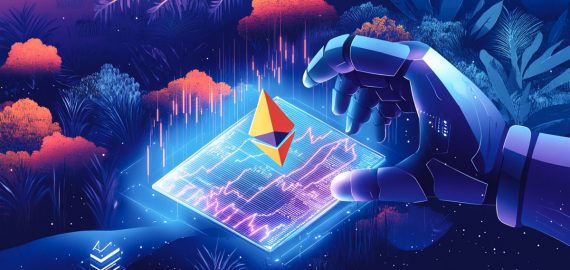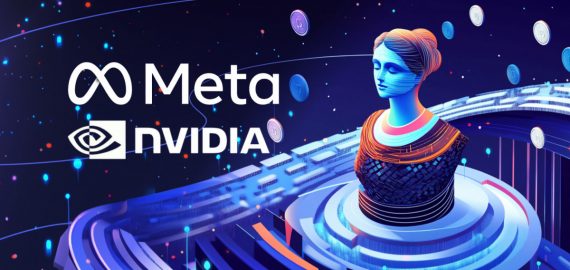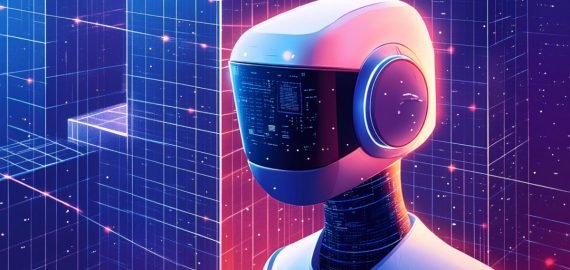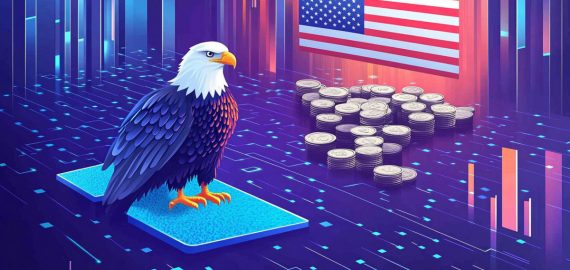Opportunities and Challenges Of AI in Music in 2024


In Brief
Check out the opportunities and challenges of AI Music, and its current and potential applications within the music industry.
A year ago, in April 2023, Grimes encouraged her fans to utilize her voice in crafting songs via her website, Elf.Tech. The AI platform allows users to freely upload their vocals and synthesize them in the artist’s style.
Grimes, in her tweet unveiling the software, conveyed her willingness to harness her voice freely, highlighting her independence from labels and legal limitations. She enthusiastically embraced the blend of human creativity and machine potential, advocating for the open sharing of art and disrupting conventional copyright paradigms.
However, not all musicians have embraced AI’s mainstream integration into the industry. The same month as Grimes announced her AI software enabling collaboration with her fans, in April 2023, Universal Music Group took legal action following the viral success of an AI collaboration between Drake and The Weeknd called “Heart on My Sleeve,” citing intellectual property concerns.
AI-generated music offers artists the opportunity to explore novel methods of music creation, transforming not only the process of crafting music but also how it is consumed and shared. Renowned figures in the music industry, such as Grimes and Brian Eno, have already embraced its potential. However, like most innovations, non-human-generated music has elicited both acclaim and critique.
In this article, we aim to comprehensively cover the theme of AI-generated music. Let’s check out the opportunities and challenges presented by the technology. Its current and potential applications within the music industry.
AI-generated music is produced through the utilization of AI technologies, leveraging algorithms and machine learning (ML) models. These systems are trained on historical music data, encompassing songs from various genres created by humans throughout history. This rich input enables AI systems to analyze and discern patterns inherent in music.
Subsequently, AI is capable of composing musical pieces that mimic the style, structure, and other attributes of human-created music predating the emergence of AI. This process involves training ML models on extensive datasets of preexisting music, allowing them to learn the intricacies of musical patterns, structures, and styles.
During the training phase, these models gain insights into the distribution of musical patterns, which they later employ to generate new compositions. They may utilize techniques such as interpolation and extrapolation to craft variations of existing compositions, drawing from their learned knowledge of music patterns.
Furthermore, post-processing techniques like harmonization, rhythm adjustment, and melody generation can be applied to enhance and refine the generated music. This multi-faceted approach enables AI to make tones that resonate with specific genres or styles, enriching the musical landscape with innovative creations.
Several approaches to AI-generated music
- Parameter-based models generate music based on predefined options such as key, tempo, rhythm, and melody. These parameters guide the composition process and allow for manipulation to introduce variations.
- Text-based models, on the other hand, generate music using textual or symbolic representations. They analyze patterns and structures within the text to create melodies, harmonies, and rhythms. Common methodologies include recurrent neural networks (RNNs) or transformer models.
- Visual-based models utilize visual representations like sheet music or piano rolls to generate music. By analyzing visual patterns and correlations among notes, these models craft new compositions.
It’s important to note that while AI-generated music can be impressive, it remains an area of ongoing research and development. The complexity and nuances of human-created compositions may not always be replicated, and there’s a subjective element in evaluating the quality and artistic value of AI-generated works.
Opportunities for AI-generated music
AI-generated music opens up a plethora of opportunities to enhance the creative journey, simplify the composition, and offer customized suggestions. By delving into extensive musical datasets, AI algorithms can kindle inspiration for musicians, shape melodies, and uphold musical heritage. Moreover, AI facilitates the involvement of individuals without musical backgrounds in music creation and fosters collaborative partnerships between humans and machines, pushing the boundaries of traditional composition and exploring uncharted musical territories.
Existing tools like Jukedeck and Amper Music streamline the music composition and arrangement processes by furnishing composers with AI-generated music tailored to their requirements, thus saving time and effort in crafting bespoke soundtracks.
Regarding the preservation of musical legacy, AI models can capture the essence and traits of specific genres by scrutinizing historical compositions and generating new music that adheres to those styles.
Platforms such as AIVA and OpenAI‘s MuseNet empower users to input specific parameters or styles and generate original music pieces with minimal musical knowledge or training. This democratizes music creation, allowing non-musicians to partake in musical expression.
Challenges in AI-Generated Music
Nevertheless, hurdles and difficulties persist within the domain of AI-generated music that necessitate attention. Despite its potential for expediting music creation, AI encounters various challenges. Primarily, there’s the concern regarding human creativity, as AI frequently struggles to encapsulate the emotional richness found in music created by humans. The majority of AI algorithms for music are crafted to produce compositions grounded in patterns or styles identified through machine learning. Consequently, this often results in music that lacks the emotional profundity and inventiveness characteristic of human-created music.
Moreover, current AI technology encounters constraints stemming from its reliance on limited datasets, resulting in restricted musical diversity and challenges in capturing human expression. Legal issues surrounding copyrights further compound the situation, as discerning ownership and authenticity become convoluted with AI-generated music. While copyright law aims to safeguard the original creators of music, the distinction between original and generated compositions blurs with AI involvement. The utilization of machine learning algorithms and datasets for music generation complicates the determination of ownership and originality, leading to legal disputes and complexities.
Ethical and social concerns also surface. There’s apprehension that AI-generated music might diminish the significance of human creativity in the music-making process, potentially diminishing artistic expression and talent. Additionally, the capacity of AI-generated music to emulate human-created compositions raises inquiries about authenticity and originality, particularly within the music industry.
The advent of generative AI technology marks a significant transformation in the music industry, offering unprecedented opportunities and formidable challenges. As we move forward, a growing number of projects and platforms concerning AI-generated music emerge, and it’s quite exciting to watch what the technology evolves into.
Disclaimer
In line with the Trust Project guidelines, please note that the information provided on this page is not intended to be and should not be interpreted as legal, tax, investment, financial, or any other form of advice. It is important to only invest what you can afford to lose and to seek independent financial advice if you have any doubts. For further information, we suggest referring to the terms and conditions as well as the help and support pages provided by the issuer or advertiser. MetaversePost is committed to accurate, unbiased reporting, but market conditions are subject to change without notice.
About The Author
Zhauhazyn is a copywriter and sociology major. Fascinated by the intricate dynamics of Science and Technology Studies, she delves deep into the realm of Web3 with a fervent passion for blockchain.
More articles

Zhauhazyn is a copywriter and sociology major. Fascinated by the intricate dynamics of Science and Technology Studies, she delves deep into the realm of Web3 with a fervent passion for blockchain.


















































